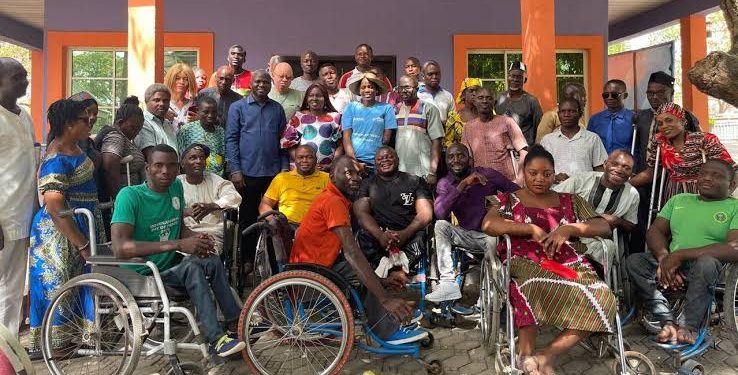Persons with disabilities (PWDs) have lamented the non-inclusion of qualified PWDs in the Ministerial nominee list of President Bola Ahmed Tinubu, stressing that the ministerial list has overlooked the imperative inclusion of persons with disabilities in Nigerian governance.
Representatives of the disability community who noted that despite the provisions of the Discrimination Against Persons With Disabilities Prohibition Act, 2018 which mandated at least 5% representation of PWDs in public office appointments, the President has failed to reflect this commitment to equality and inclusivity.
The PWDs explained that the “this omission is not just a violation of the legal framework promoting disability rights, but it also contradicts the broader societal benefits of including individuals with disabilities in key governmental positions. Such representation not only upholds the principles of equality but also brings diverse perspectives to the decision-making process, ensuring policies align with the needs and rights of all Nigerians.
In a press release issued by TAF Africa, DRAC, IFA, CARE, FAECARE Foundation, The Qualitative Magazine, AAN, JONAPWD, NAPWPD, CEDARSEED FOUNDATION, Network of Women with Disabilities, and Alliance for Inclusion, PWDs presented a timeline of seven days for the initiation of measures to address their concerns.
The groups thereafter demand the “immediate appointment of persons with disabilities into Ministerial positions at the National level and Commissioner positions at state levels; The enforcement of Section 29 of the Discrimination Against Persons with Disabilities (Prohibition) Act, 2018 which provides to the effect that a minimum of 5% appointment quota for persons with disabilities at all levels of government, including states;
“Convene a constructive and inclusive dialogue with President Bola Tinubu and relevant governmental authorities to discuss the concerns and aspirations of persons with disabilities; and Ensuring the inclusion of persons with disabilities in decision-making processes concerning policies that directly or indirectly affect them e.g., the palliative committee on subsidy removal.”
They also noted that “Should the period pass without observable progress, we would feel compelled, albeit reluctantly, to amplify our advocacy efforts. These might encompass peaceful assemblies, exploring legal avenues in alignment with the Discrimination Against Persons With Disabilities Prohibition Act, 2018, and fostering conversations with both local and global media partners to emphasize the importance of disability representation in governance. Our dedication to inclusive participation remains steadfast, and we earnestly hope for collaborative action in this endeavor.”

